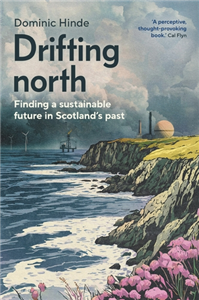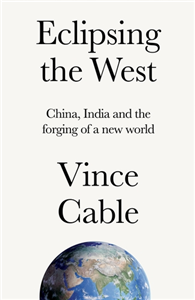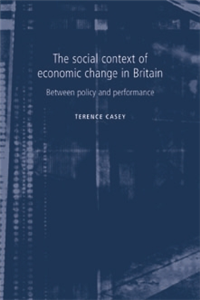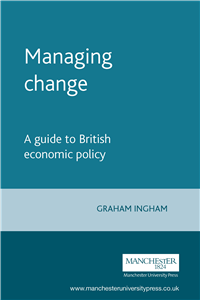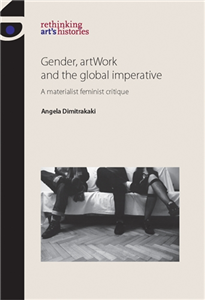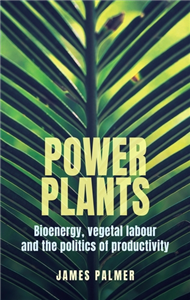Your Search Results
-
Promoted ContentChildren's & YA
Climate Change. What We Can Do Now
by Ruth Omphalius/ Monika Azakli
“There is no Planet B!” More and more young people are worried about the future of Planet Earth. Climate change is heating not only the planet but also people’s emotions. But what exactly is climate? And why are the changes threatening the lives of both polar bears and us humans. In simple language but with solid science, the authors explain the most important aspects of climate, from the greenhouse effect to the Gulf Stream. Current developments are described as well, and the scientific background is supplemented by gripping reports. The book also offers a glimpse of the future: what will happen if we go on in the same way as now? How can climate change be halted? This makes for riveting reading – and not just for young activists.
-
Promoted Content
-
 Trusted Partner
Humanities & Social SciencesJuly 2018
Trusted Partner
Humanities & Social SciencesJuly 2018Climate change and the oil industry
by Jon Birger Skjaerseth, Jon Skjaerseth, Tora Skodvin, Mikael Anderssen, Duncan Liefferink, Caroline Wilding
-
 Trusted Partner
Geography & the EnvironmentOctober 2025
Trusted Partner
Geography & the EnvironmentOctober 2025Drifting north
Finding the future at the top of the world
by Dominic Hinde
Scotland's past and future collide in this engaging journey through climate change, fossil capitalism and the struggle for a sustainable world. Scotland's history and future are entangled with climate change and the story of the modern world. This small country on the fringes of northern Europe pioneered fossil capitalism and played a key role in its spread across the planet. It is a living museum of the crisis of the west, of deindustrialisation, stagnation and the struggle to build a better future from the ashes. Journalist and sociologist Dominic Hinde travels from the treeless Highlands to the lowland cities, struggling to balance memories with aspiration. Through this journey he finds that his own sensory turmoil, shaped by recovery from a near fatal accident, mirrors the disarray of the fossil fuel transition - an uncertain passage between what was and what must be. Part memoir, part environmental history, part travelogue, this is a compelling narrative of connections - to place, energy and the possibility of renewal. Through the lens of one country, it asks a vital question: can the lessons of the past help us build a more sustainable future?
-
 Trusted Partner
Humanities & Social SciencesSeptember 2025
Trusted Partner
Humanities & Social SciencesSeptember 2025Eclipsing the West
China, India and the forging of a new world
by Vince Cable
As the international order begins to crumble, this incisive book asks what the rise of the Asian superstates means for the future. The Western-dominated world we have known for the past three hundred years is coming to an end. As America withdraws from its role as enforcer of the international order, other countries are moving in to fill the void. Among them are two rising Asian 'superstates'. Accounting for almost half of the world's population, China and India have the potential to wield enormous economic and political power. China is already vying with the US for the top spot in the global economy, and on some measures has surpassed it. By the middle of the century India may be number two. How will these countries navigate their growing roles on the world stage? What are the implications for commerce, international law and the fight against climate change? Vince Cable has followed China and India for decades, first as a professional economist and later as a senior government minister. In Eclipsing the West he draws on the latest data and a lifetime of political and economic experience to offer a compelling account of what the rise of the Asian superstates means for the future.
-
 Trusted Partner
Trusted Partner
-
 Trusted Partner
Children's & YAAugust 2020
Trusted Partner
Children's & YAAugust 2020Cryptos
by Poznanski, Ursula
Where do we go when Nowhere is the only destination left? Kerrybrook is Jana‘s favourite virtual escape. An idyllic fishing village with beautiful nature and, every now and then, a breeze of fresh air from the nearby sea. Jana, is this world‘s designer and person in power, she’s satisfied with her masterpiece. Best job so far. Until one day, a dead body is found, in both, ’Virtual Reality‘ and the real world. In times of climate change, VR is the only safe place for humankind. That‘s why Jana needs to solve the crime, she’s responsible for stopping the destruction. • CliFi Thriller (Climate Fiction): Climate change & virtual reality • For fans of Black Mirror (Netflix) • All age readers • Strong, female protagonist • Highly relevant topic WHITE RAVENS recommendation (2021): "In the not too distant future, the world is an inhospitable place: droughts, storms, floods. That’s why world designers construct »alternative realities«, such as landscapes populated by dinosaurs, life at court in the Middle Ages, and surfing and chilling out on a beach. People can switch between these worlds at will and, when they die there, they are not truly dead; instead, they merely return to the »real world« – same as at night when they sleep. Then they are reunited with their body, which is lying inside a capsule. In »Cryptos«, Ursula Poznanski pulls out all the stops of storytelling: She embeds numerous references to human and intellectual history in an action-packed and extremely suspenseful thriller plot. In the process, she raises central existential and ontological questions that result from the interplay between the real and the virtual worlds. This complex dystopian novel is narrated in such an enjoyable way that readers will hardly notice their brains going into overdrive as they devour it."
-
 Trusted Partner
Medicine
Trusted Partner
MedicineHumor in Psychiatric Care
by Jonathan Gutmann
How can humor be used to engage with and help people suffering from mental illness? This practical handbook explains the concept of humor in psychiatric treatment and sets out the case for employing it. The author outlines how nurses can assess who might benefit from the use of humor and for whom it would be out of place, and provides a toolkit of humorous interventions for daily nursing practice. Target Group: Practicing nurses, psychiatric nurses, care clowns
-
 Trusted Partner
Humanities & Social SciencesJanuary 2025
Trusted Partner
Humanities & Social SciencesJanuary 2025Crisis and change in European Union foreign policy
by Nikki Ikani
-
 Trusted Partner
Humanities & Social SciencesOctober 2008
Trusted Partner
Humanities & Social SciencesOctober 2008The social context of economic change in Britain
Between policy and performance
by Terrence Casey
This important book, newly available in paperback, examines a period of dramatic economic change in Britain during the Thatcher era. The Conservatives' free market policies generally improved the performance of the economy in Britain, but some parts of the country still did poorly (for example northern England). Casey argues that this was as a result of variations in social contexts - a combination of institutions, interests and economic culture. Southern England, possessing a more individualistic culture and higher levels of entrepreneurialism, has a 'market responsive' social context that can prosper under free market policies. Social context is thus a crucial intervening variable between the policies selected by decision-makers and the performance of economies, the key for enhancing prosperity is the proper match between economic policies and the context in which they are implemented. The social context of economic change in Britain provides an original theoretical framework linking economic growth and civil society and offers a unique insight into the Thatcher era. This book will be of interest to students of British politics and comparative political economy, public policy and political history. ;
-
 Trusted Partner
Political structure & processesMay 2007
Trusted Partner
Political structure & processesMay 2007Devolution and constitutional change in Northern Ireland
by Edited by Paul Carmichael, Colin Knox and Robert Osborne
This edited book, written by a collection of scholars with an interest in Northern Ireland, tracks its uneasy experience with devolution following the optimistic political period associated with the 1998 Belfast (Good Friday) Agreement. The volume brings together researchers from the Economic and Social Research Council's (ESRC) 'Devolution and Constitutional Change' Programme and other experts to record four key perspectives on Northern Ireland. First, it considers the inextricable link between devolution and constitutional developments. Second, it examines how the main political parties responded to devolution and the major challenges faced by society in moving beyond conflict (such as political symbolism, the role of women, equality and human rights issues). Third, it attempts to assess some of the workings of devolved government in its short-lived form or those seeded in devolution and carried on by direct rule ministers. Finally, Northern Irelands devolved government and associated institutions are located within the wider relationships with Westminster, the Republic of Ireland and Europe. This edited volume will be of interest to students of Irish politics and public policy, but more generally, from a comparative perspective, those with an interest in devolution and constitutional change. It may even assist politicians in Northern Ireland to reflect on the real potential to restore its devolved institutions and draw back from the brink of permanently copper-fastening 'direct rule' from Westminster.
-
 Trusted Partner
Humanities & Social SciencesFebruary 2024
Trusted Partner
Humanities & Social SciencesFebruary 2024Political ecologies of the Far Right
by Irma Kinga Allen, Ståle Holgersen, Andreas Malm, Kristoffer Ekberg
-
 Trusted Partner
Trusted Partner
-
 Trusted Partner
Trusted Partner
-
 Trusted Partner
August 2014
Trusted Partner
August 2014Risky change?
Vulnerability and adaptation between climate change and transformation dynamics in Can Tho City, Vietnam
by Garschagen, Matthias
-
 Trusted Partner
The ArtsOctober 2013
Trusted Partner
The ArtsOctober 2013Gender, artWork and the global imperative
A materialist feminist critique
by Angela Dimitrakaki
Is gender implicated in how art does its work in the world created by global capital? Is a global imperative exclusive to capital's planetary expansion or also witnessed in oppositional practices in art and curating? And what is new in the gendered paradigms of art after the fall of the Berlin Wall? Angela Dimitrakaki addresses these questions in an insightful and highly original analysis of travel as artistic labour, the sexualisation of migration as a relationship between Eastern and Western Europe, the rise of female collectives, masculinity and globalisation's 'bad boys', the emergence of a gendered economic subject that has dethroned postmodernism, and the need for a renewed materialist feminism. This is a theoretically astute overview of developments in art and its contexts since the 1990s and the first study to attempt a critical refocusing of feminist politics in art history in the wake of globalisation. It will be essential reading in art history, gender, feminist and globalisation studies, curatorial theory, cultural studies and beyond. ;
-
 Trusted Partner
Business, Economics & LawJanuary 2022
Trusted Partner
Business, Economics & LawJanuary 2022Reclaiming economics for future generations
by Lucy Ambler, Joe Earle, Nicola Scott, Julie Froud
-
 Trusted Partner
Business, Economics & LawJune 2026
Trusted Partner
Business, Economics & LawJune 2026Power plants
Bioenergy, vegetal labour and the politics of productivity
by James Palmer
Power Plants offers an unflinching assessment of society's underappreciated but growing addiction to the industrial burning of crops and trees for energy. As vehicles increasingly run on fuels made from sugarcane and oil-palm, wood pellets replace coal, and scientists rush to engineer crops to produce renewable jet fuel, this book blows apart bioenergy's reputation as a simple, benign substitute for fossil fuels. Scrutinising modern bioenergy systems in the UK, Europe and United States, Power Plants shows how vegetal lifeforms are being enrolled to reinforce energy cultures centred around logics of efficiency, productivity and economic growth at all costs. Nonetheless, the book insists that a closer attention to plants could yet provoke a rethink of the social and economic purposes of all kinds of energy, with radical implications for ideas about growth, waste, prosperity and even pleasure.
-
 Trusted Partner
June 2024
Trusted Partner
June 2024Evolution (2). Der Turm der Gefangenen
Die Fortsetzung des Pageturners über das Ende der Menschheit. Zeitreise-Abenteuer ab 12 Jahren
by Thomas Thiemeyer
Evolution ist unaufhaltsam. Evolution ist unausweichlich. Sie macht vor niemandem Halt. Auch nicht vor uns … Mit letzten Kräften erreichen Lucie und ihre Freunde die Stadt der Überlebenden. Während Jem vor den Toren gegen angreifende Tiere kämpft, hofft Lucie im Inneren endlich Antworten zu finden. Doch im Schatten der Türme scheint das Mittelalter wieder aufgelebt zu sein: Wissenschaft gilt als schwarze Magie, Fragenstellen ist streng verboten. Als die Jugendlichen aus verbotenen Büchern erfahren, dass sie nicht die ersten Zeitreisenden sind, entlädt sich der Zorn des Burgherrn. Den Freunden bleibt nur die Flucht. Ihr Ziel: der einzige Ort, der noch Hoffnung verspricht ? die Oase der Zeitspringer. Aber der Weg dorthin führt durch gefährliche Sümpfe, mitten ins Land der Squids. Der mehrfach prämierte Autor Thomas Thiemeyer mit der Fortsetzung seiner erschreckend aktuellen Zukunfts-Trilogie: abwechslungsreich und fesselnd! Titel von Thomas Thiemeyer im Arena Verlag:Zefira. Es hätte sie nie geben dürfen.World Runner (1-2)Countdown. Der letzte WiderstandEvolution (1-3)
-
 Trusted Partner
Trusted Partner








